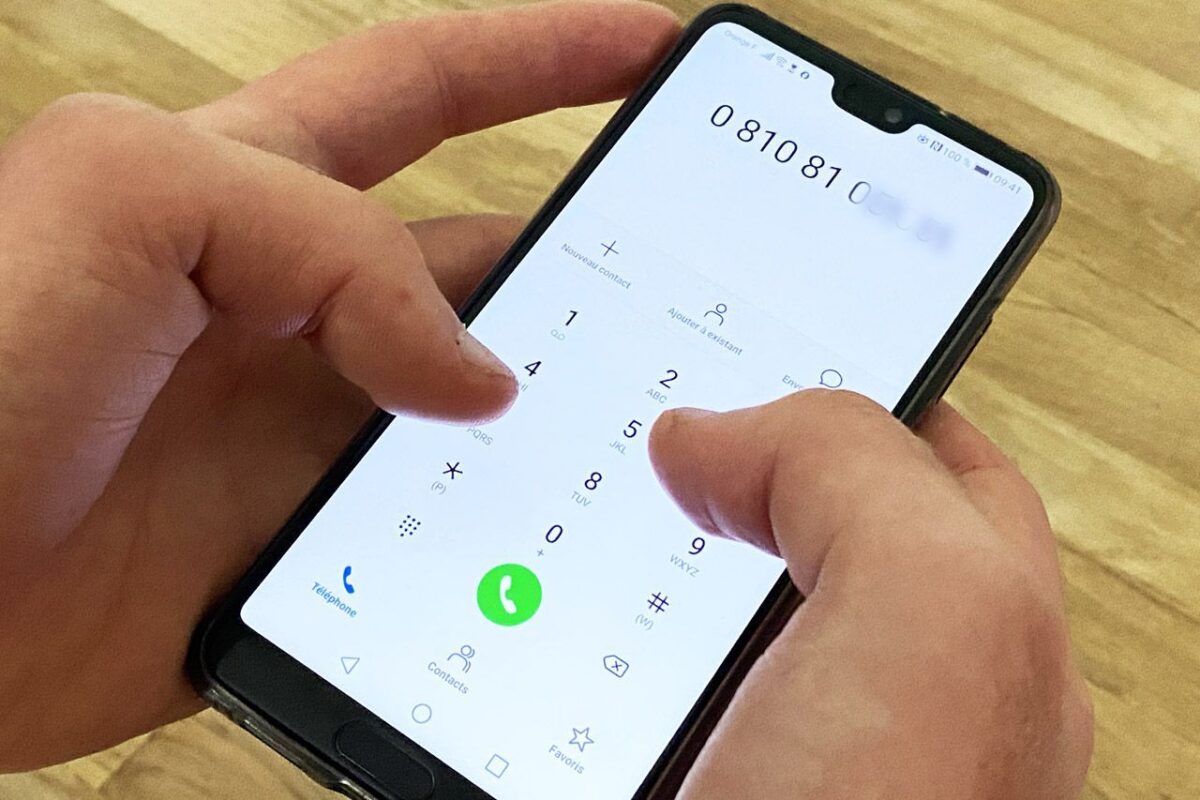Show summary Hide summary
A quick call, replying to a text, or googling a customer support number — these everyday actions can now cost you hundreds of euros. In 2025, premium rate number scams are surging, catching unsuspecting victims with alarming ease.
These scams are subtle but powerful, exploiting our lack of awareness and the complexity of phone billing. Worse, scammers now use fake websites, misleading ads, and manipulated search results to lure victims into calling expensive numbers.
In this article, learn how these scams work, which numbers to avoid, and how you can protect yourself with ScamBlock before it’s too late.
What is a premium rate phone scam?
A premium rate scam tricks victims into calling costly phone numbers (0899, 118, etc.) by using fake websites, text messages, or ads. These calls can result in large charges without providing real service.
1. What is a premium rate number?
A premium rate number is a phone number that charges extra fees on top of your standard call cost. These are often used by:
- Tech support services
- Contest and prize entry lines
- Some (or fake) administrative hotlines
They typically start with 08, 0899, 118, or are short 4–5 digit codes.
2. How scammers trick victims in 2025
🔍 Through search engines or social media
Scammers buy Google ads or create well-optimized fake websites that appear at the top when users search for things like “SAV Chronopost,” “CAF number,” or “Amazon support.”
📲 Through SMS or messaging apps
Texts like:
“You’ve won a gift card! Call 0899 xxx xxx to claim it.”
or
“Your package is waiting. Call 118 xxx to confirm delivery.”
🧑💻 With fake agents on the line
Once you call, scammers put you on hold as long as possible or pass you between fake departments to rack up the charges.
3. Real examples of premium rate fraud
- A fake “CAF” number on Google charging €3 per minute with no actual service provided
- SMS messages pretending to be from Chronopost urging victims to call a premium number for a fake delivery
- Phishing websites offering CPF refunds but requiring a costly call to an 0899 number
4. The most commonly targeted services and numbers
In 2025, scammers focus on:
- Package delivery services (Colissimo, UPS, Chronopost)
- Government agencies (CAF, taxes, Social Security)
- Big brand customer support (Amazon, Orange, SFR)
- Fake reimbursement services (training funds, energy aid)
- Contest lines and product testers
5. Warning signs to recognize
Stay alert for:
- Numbers starting with 08, 0899, 118, or strange shortcodes
- Websites that look unofficial or sketchy
- No clear pricing information shown (which is legally required)
- Promises that sound too good to be true
- Long wait times during the call with no real assistance
6. How to avoid falling for premium rate scams
- Always check phone numbers directly on official websites (gouv.fr, caf.fr, etc.)
- Don’t trust sponsored results on Google without cross-checking
- Use ScamBlock to filter out dangerous links and websites
- Never call back an unknown number without checking its reputation
- Ignore any SMS or WhatsApp messages asking you to call numbers
7. How ScamBlock protects you
ScamBlock helps you avoid premium number scams before you even make a call:
- 🛑 Blocks links to websites that list known fraudulent numbers
- 🔍 Analyzes web pages for hidden or deceptive premium-rate numbers
- 🚨 Alerts you if a website tries to trick you into calling one
- 📲 Can integrate with mobile apps to scan suspicious SMS content
In short: ScamBlock acts before the damage is done.
In 2025, a simple phone call could result in an unexpectedly high bill if you’re not careful. Scammers prey on urgency, confusion, and visibility by embedding fake premium rate numbers in your everyday searches and messages.
With awareness, vigilance, and the help of tools like ScamBlock, you can stay one step ahead and avoid getting charged for nothing. Because in today’s digital world, prevention is more powerful than cure.


